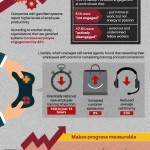According to research by language experts Rosetta Stone, 58% of UK adults believe that knowing a second language would help someone’s career. It seems they’re right, polyglots do earn more, even when they don’t necessarily use multiple languages at work.
The ability to translate in a foreign language is vital for businesses that operate internationally, which is why employees that speak a second or more languages are becoming increasingly valuable.
Becoming bilingual can open up opportunities previously unavailable to you. Your second language can help you get ahead, from working in translation services, marketing, and as a teacher, we’ve rounded up some careers which could become open to you if you gain foreign language skills and qualifications. .
Translator/Interpreter
This is the most obvious one, however there is much more to translation than simply being fluent in two or more languages. Working as a translator offers great opportunities to work across a variety of industries from marketing to medical, legal to education sectors and almost everything in between. From face to face interpretation to media transcription, businesses highly value the services that professional translators and interpreters provide.
Starting salaries for translators in the UK vary and freelance rates are usually calculated according to the word count. How much you earn depends on whether or not you work with a reputable translation company and also depends on what language you translate. This is influenced by both the usefulness of the language and the sparsity of translators. The most in demand languages in the United States are Japanese, Arabic, Chinese, and Danish.
Being an expert in a certain field can help you become a translator. To guarantee a quality translation service, many businesses only hire translators and interpreters who are members of translation associations such as The Institute of Translation & Interpreting (ITI).
The best translators also have industry specific knowledge and translation companies look for these attributes. So polyglots with, say, an in depth knowledge of the pharmaceutical industry will be perfectly placed to provide a translation service for a pharmaceutical company.
Teaching
Having a degree in, or even fluently speaking, a second language could help you to start a career in teaching, even if you don’t teach that language specifically. In fact, the Los Angeles Unified School District pays bilingual teachers a bonus of up to $5,000 annually.
In the UK, knowing another language can help you earn more teaching at a secondary school, in addition to helping you take part in TEFL. Not only that, but a second language can also help you join the FE (Further Education) sector. AoC Jobs specialise in finding the right candidates FE careers, and they state that there are a variety of career benefits that come from speaking a second language; “from being more attractive to employers to having job opportunities abroad.”
Newly qualified teachers in England and Wales start can earn a salary of anywhere between £22,244 to £32,831.
Marketing Executive
Marketing executives can be found in both the private and public sectors, ranging from the financial, retailing and media industries, to voluntary and public sector organisations.
Communicating the right brand message to international audiences can be incredibly difficult.
Some of the world’s leading companies have made costly translation mistakes when translating marketing campaigns into foreign languages. That’s why those that are fluent in a foreign language are vital to the marketing process.
Marketing assistants and trainees start on salaries around £17,300 to £19,000. The overall average salary is £45,021, with the drinks, automotive and the TV industries providing the highest wages. In an increasingly globalised world, the demand for multi linguists in the marketing industry is through the roof. As well as resulting in a higher pay, another language can help you win and instant rapport with clients and even help you clinch deals.
Journalist
Whether you’re an editor, reporter, news anchor or producer, speaking a foreign language can be extremely useful if you want a career in journalism. Starting salaries vary significantly between local and national broadcasters but a starting salary can usually range from around £16,000 to £24,000. The most experienced and high-profile journalists may command salaries of more than £80,000.
Michael Cross, a journalist whose work has been published in The Guardian, credits his knowledge of languages as vital to finding stories and making contacts abroad. He was quoted as saying: “the traditional view in journalism is there’s no point in learning a language because you can never predict where you’ll be sent. This is tosh.”
Actor
Some of Hollywood’s biggest actors have used languages to help their careers. Ben Affleck speaks Spanish, a skill that he has utilised in several film roles including Oscar winning Argo. Diane Kruger speaks English, German and French and this helped her gain a role in Tarantino’s ‘Inglourious Basterds’.
These are obviously very famous examples and it’s unlikely learning another language will bag you a leading role in the next Scorsese film, however it does prove that learning languages can be beneficial to anyone. Obviously, it’s vital for a career in translation services, but the truth is languages can help open doors in almost any industry.







